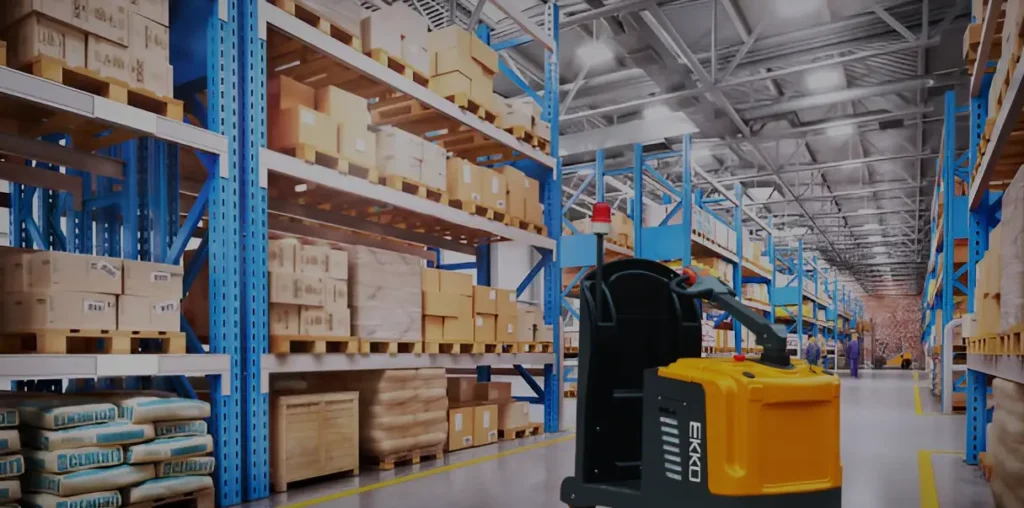Why Fast Emergency Forklift Repair Is Vital in HoustonIntroduction
Forklifts are the backbone of many businesses in Houston, Texas.
In this dynamic city known for its vast warehouses, manufacturing plants, and distribution centers, these powerful machines keep operations running smoothly.
However, even the most reliable models of forklifts can face unexpected breakdowns, and in such moments, the speed and efficiency of repair services become critical.
When a forklift breaks down, it’s not just a minor inconvenience.
It can halt operations, delay shipments, and impact the bottom line.
That’s why customers having access to quick and efficient emergency forklift repair services is essential. In an emergency, every minute counts, and the faster a forklift is back up and running, the less disruption a business faces.
This blog is dedicated to guiding Houston area based businesses in their search for reliable emergency forklift repair services.
Whether you’re facing a mechanical failure, an electrical issue, or any other forklift emergency, finding the right repair service promptly can make all the difference.
We’ll explore how to prepare for such situations, how to quickly find and evaluate repair services, and the importance of choosing a professional service to minimize downtime and ensure safety.
Let’s dive into the world of emergency forklift repair in Houston, TX, and ensure your business’ lift equipment stays moving even when unexpected challenges arise.
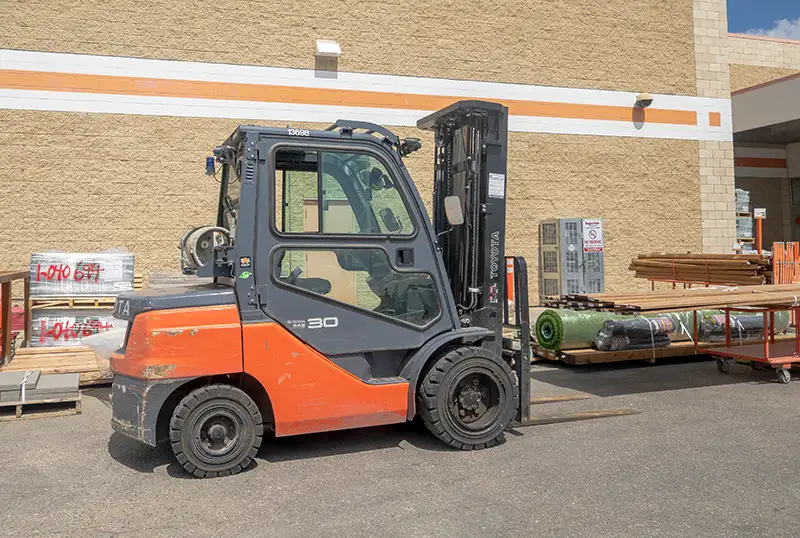
Understanding Forklift Emergencies For Forklift Equipment
Definition of a Forklift Emergency:
A forklift emergency is any situation where a forklift malfunctions or breaks down, hindering the forklift services its normal operation and potentially causing a halt in business activities. These emergencies require immediate attention because they can lead to work stoppages, safety hazards, and financial losses.
Common Types of Forklift Emergencies For Material Handling Equipment:
- Mechanical Failures:
- Parts like brakes, transmissions, or engines failing.
- Issues with the steering mechanism.
- Breakdowns in the lifting apparatus.
- Electrical Issues:
- Problems with the forklift’s battery or electrical system.
- Failures in the ignition system.
- Electrical shorts or malfunctions in wiring.
- Hydraulic Problems:
- Leaks or failures in the hydraulic system.
- Difficulty in lifting or moving loads.
- Problems with forklift stability due to hydraulic issues.
The Impact of These Emergencies on Business Operations:
- Operational Delays: Forklift emergencies can halt or slow down critical operations like loading, unloading, and moving goods.
- Safety Risks: A malfunctioning forklift can pose serious safety risks to operators and other employees, especially if it occurs suddenly during operation.
- Financial Implications: Unexpected downtime can lead to missed deadlines, dissatisfied customers, and potential loss of revenue. In addition, the cost of repairs, especially if urgent, can be significant.
- Productivity Loss: When a forklift is down, it affects the overall productivity of the workforce, as tasks may take longer to complete or may have to be postponed.
Understanding these emergencies and their impact is the first step in effectively handling them. In the following sections, we will delve into how businesses can prepare for and address these challenges, minimizing downtime and ensuring a swift return to normal operations.

Preparing for Forklift Emergencies
Importance of Having a Plan for Forklift Emergencies:
Having a well-thought-out plan for forklift emergencies is crucial for any business that relies on these machines. A good emergency plan not only minimizes the downtime caused by a forklift breakdown but also ensures the safety of employees and the continuity of operations. Being prepared means you can respond quickly and effectively, reducing the impact on your business.
Tips for Preventative Maintenance to Reduce the Likelihood of Emergencies:
- Regular Inspections: Conduct daily or weekly inspections of your forklifts. Look for signs of wear and tear, check fluid levels, gas, and ensure that all parts are functioning correctly.
- Scheduled Maintenance: Stick to a regular maintenance schedule as recommended by the forklift manufacturer. This includes oil changes, filter replacements, and other routine services.
- Operator Training: Ensure that all forklift operators are properly trained. Trained operators are more likely to handle the equipment correctly and notice potential problems early.
- Address Issues Promptly: If a minor issue is detected, address it immediately. Small problems can quickly turn into major emergencies if ignored.
- Use Quality Parts: When parts need replacing, use high-quality replacements. This can extend the life of your forklift and prevent breakdowns.
Keeping a List of Emergency Contacts for Forklift Repairs:
- Compile a List of Service Providers: Research and compile a list of reliable forklift repair services in Houston. This list should include providers who specialize in emergency repairs and offer quick response times.
- Contact Information: Ensure the list includes all necessary contact information, like phone numbers, email addresses, and physical addresses.
- Service Details: Note down the specific services each provider offers, such as 24/7 availability, types of forklifts they can repair, and estimated response times from their service department.
- Keep the List Accessible: Ensure the list is easily accessible to all relevant personnel. Consider keeping a digital copy and a physical copy in a central location.
By preparing in advance and implementing these preventative measures, businesses can significantly reduce the likelihood, cost and impact of forklift emergencies of their fleet. This proactive approach not only helps in maintaining continuous operations but also plays a crucial role in ensuring workplace safety.
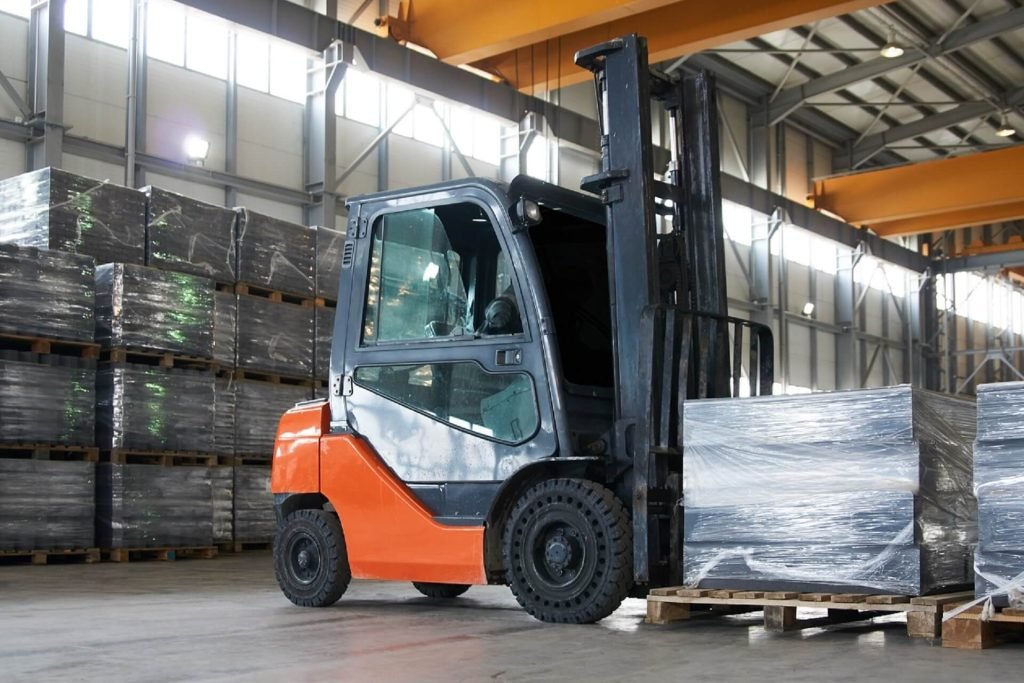
How to Find Emergency Forklift Repair Services in Houston
Steps to Take Immediately Following a Forklift Emergency:
- Ensure Safety: Immediately secure the area around the malfunctioning forklift to prevent accidents.
- Assess the Situation: Quickly determine the nature of the problem – whether it’s mechanical, electrical, or hydraulic.
- Shut Down the Forklift: Turn off the forklift to prevent further damage.
- Notify Supervisors: Inform the relevant supervisors or management about the emergency.
- Consult Your Emergency Plan: Refer to your pre-established emergency plan for the next steps.
- Contact a Repair Service: Using your list of emergency contacts, reach out to a forklift repair service in Houston.
Key Factors to Consider When Choosing a Repair Service:
- Response Time: Look for services known for their quick response. In emergencies, every minute counts, and a fast response can significantly reduce downtime.
- Expertise and Experience: Choose services with a track record of expertise in forklift repairs. Experienced technicians can diagnose and fix problems more efficiently.
- Availability of Parts and Tools: Ensure the service provider has immediate access to the necessary parts and tools for your specific forklift model.
- Customer Reviews and Reputation: Research the service provider’s reputation. Read customer reviews and testimonials to gauge the quality of their service.
- Certifications: Check if the technicians are certified and trained to work on forklifts, ensuring quality and safety in repairs.
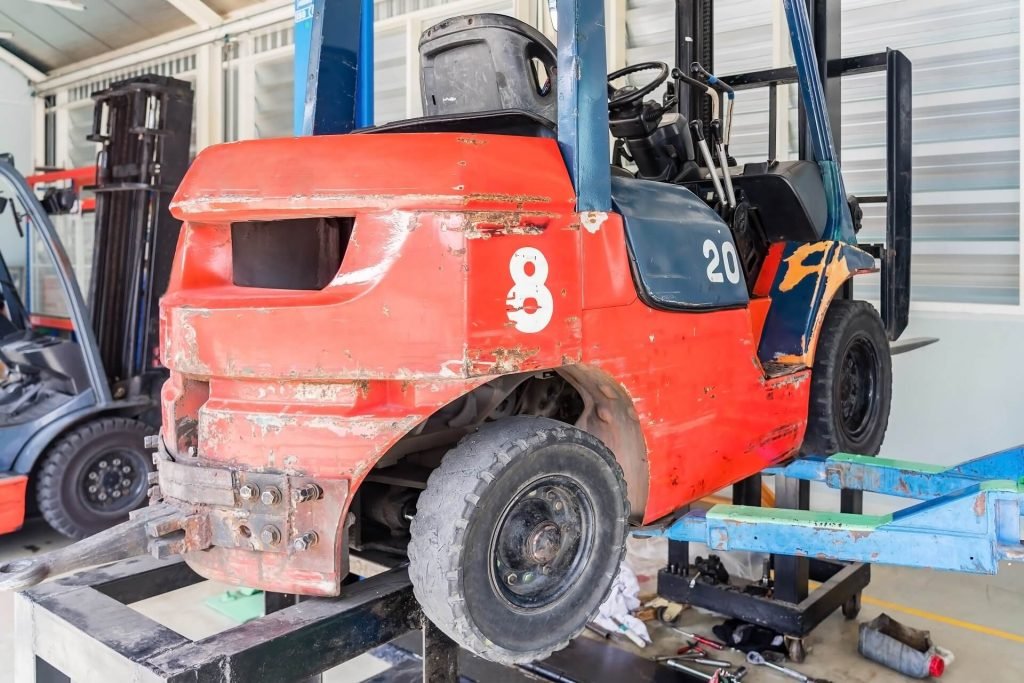
Local Houston Forklift Repair Services Overview:
- Diverse Service Offerings: Houston boasts a range of forklift repair services catering to various types and brands of forklifts.
- 24/7 Availability: Many services in Houston offer 24/7 emergency repair, which is crucial for businesses operating outside regular hours.
- Mobile Repair Services: Some Houston services provide mobile repair units that come to your location, offering convenient and quick repairs.
- Competitive Pricing: With multiple service providers, businesses can find competitive pricing and choose services that offer the best value for money.
When a electric forklift emergency occurs, having a clear plan and knowing what to look for in a repair service can make a significant difference. By choosing the right emergency repair and forklift service in Houston, you can ensure minimal disruption to your operations and a quick return to normal business activities maintain.
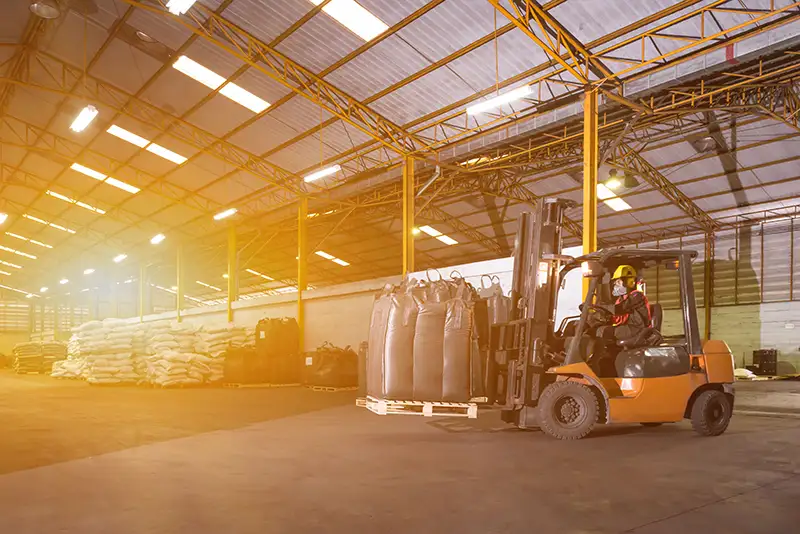
Evaluating Forklift Repair Service Providers
What to Look for in a Good Repair Service:
- Certified and Trained Technicians:
- Ensure that the technicians are properly certified to work on forklifts.
- Look for training credentials that indicate specialization in different types of forklifts and repairs.
- Experienced technicians can provide more reliable and efficient repair services.
- Transparent Pricing:
- A reputable service provider should offer clear and upfront pricing.
- Avoid services that have hidden fees or are vague about their rates.
- Request detailed quotes to understand what you are paying for.
- Warranty or Guarantee on Repairs:
- Check if the service provider offers a warranty or guarantee on their repair work.
- A warranty indicates confidence in the quality of the repair and provides peace of mind.
- Understand the terms and duration of the warranty to ensure it meets your exact needs.

Questions to Ask Potential Service Providers:
- How quickly can you respond to an emergency call?
- This question helps gauge their ability to provide prompt service, which is crucial in emergency situations.
- Do you have experience with my specific type of forklift?
- Ensure the provider has expertise in dealing with your particular forklift model and brand.
- Can you provide a detailed quote before beginning repairs?
- Asking for a quote upfront can help you avoid surprise costs and assess the affordability of the service.
- What does your warranty or guarantee cover?
- Clarify the scope of the warranty to understand what protections you have post-repair.
- Do you have customer references or reviews I can check?
- Requesting references or checking online reviews can provide insights into the provider’s track record and customer satisfaction.
- Are your technicians certified and regularly trained?
- This question helps confirm the qualifications and ongoing education of the technicians who will be handling your forklift.
By carefully evaluating forklift repair service providers based on these criteria, you can make an informed decision that ensures quality, reliability, and value for your emergency lift repair needs. Choosing the right service provider is essential for getting your forklift back in operation swiftly and safely, minimizing the impact on your business.
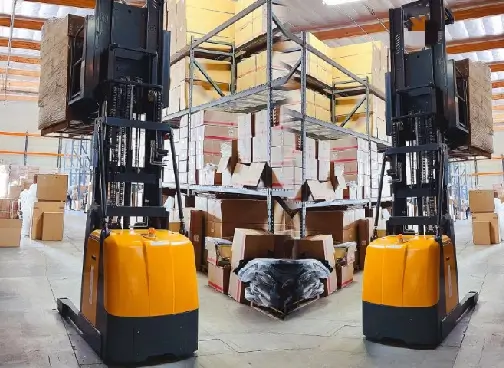
DIY vs. Professional Forklift Repair
Risks Associated with DIY Repairs in Emergency Situations:
- Safety Concerns: Forklifts are complex machines. Attempting DIY repairs without proper training can pose significant safety risks to the person performing the repairs and others in the vicinity.
- Potential for Further Damage: Incorrect repairs can lead to further damage to the forklift, potentially leading to more costly repairs in the future.
- Voiding Warranty: DIY repairs may void any existing warranties on the forklift, leaving you without coverage for future issues.
- Compliance Issues: Improper repairs may result in the forklift not meeting industry safety standards and regulations.
Benefits of Choosing Professional Repair Services:
- Expertise and Experience: Professionals have the necessary training and experience to diagnose and repair issues correctly and efficiently.
- Safety Assurance: Professional services ensure repairs are done safely, adhering to industry standards and regulations.
- Warranty and Guarantees: Most professional repair services offer a warranty on their work, providing you with additional security and peace of mind.
- Timesaving: Professional services can often repair the forklift more quickly, reducing downtime for your business.
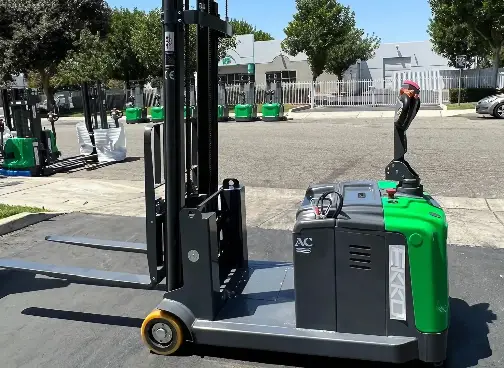
Conclusion
In this blog, we’ve explored the vital role forklifts play in Houston’s industrial and commercial sectors and the importance of being prepared for emergencies. We discussed how to identify and respond to forklift emergencies, the crucial factors in choosing the right forklift equipment repair service, and the risks of DIY repairs versus the benefits of professional services.
Key Takeaways:
- Understand the types of forklift emergencies and their impact on operations.
- Prepare in advance with a clear emergency plan and a list of reliable repair service providers.
- Evaluate potential repair services based on factors like response time, expertise, and customer review of the company.
- Prioritize safety and efficiency by opting for professional repair services over DIY attempts.
Encouraging Prompt Action and Preparation: It’s crucial for businesses to not only be reactive in emergency situations but also proactive in their preparations. Regular maintenance, training, maintenance and having a solid emergency response plan are key to minimizing the impact of forklift emergencies.
Final Thoughts on Maintaining the Efficiency of Forklift Operations in Houston: By being prepared and making informed decisions about forklift maintenance and repair, businesses in Houston can ensure that their operations remain efficient, safe, and productive. Remember, the right approach to forklift repair and maintenance is not just about fixing a problem; it’s about maintaining the overall health and productivity of your business.
